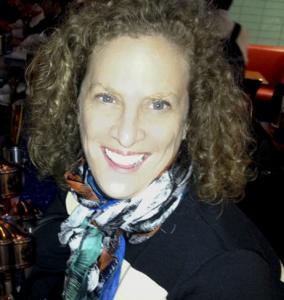Jodi Cohen
Former Global Communications Lead - Seeds, Bayer Crop Science
Expert Bio
Jodi Cohen is a city girl who has worked as a global communications leader for over 15 years for global companies such as Novartis, Zoetis, Dun & Bradstreet and more. She started her career in the big city as a journalist and editor for science and healthcare trade journals.
She has served as the Global Communications Lead – Seeds for Bayer since 2012, based in the Global Seeds HQ in Research Triangle Park, North Carolina. She served as the Global Communications Lead – Seeds for Bayer from 2012 to 2016. As a member of the Market Acceptance Leadership Team, Jodi was tasked to inform and inspire global stakeholders internally and externally on the sustainable benefits and safety of the Bayer Seeds business, enabling success in key and emerging markets from pragmatic and science-based policy and an environment that accepts and values Bayer’s innovative solutions.
Prior to joining Bayer, Jodi worked in healthcare, animal science and financial communications and is now thankful to have the chance to be working for a company that allows her to professionally and personally communicate about how food is really grown. She earned her Bachelor’s degree in journalism from the University of Missouri School of Journalism. She and her 10-year old daughter and their spoiled cat live in Chapel Hill, North Carolina.
Jodi Cohen is no longer a Global Communications Lead – Seeds for Bayer. Answers and content from Yvonne Badke were provided in her former capacity as Global Communications Lead – Seeds for Bayer.
Studies, Articles and Answers
Showing 1 out of 1 results
Question
A: Genetic engineering is an important process for breeding crops that are safe and provide important benefits for farmers and consumers around the world. I have personally been involved in this business for many years and have seen the success that both farmers in the U.S. and smallholder farmers in emerging nations are having with these crops. Since the first plantings in 1996, more than 4 billion acres of biotech crops have been successfully cultivated. In 2014 alone, biotech crops were planted in 28 countries by 18 million farmers, according to the International Service for the Acquisition o [...]
A: Thank you for your question. Our CEOs and executives are proud to eat food with ingredients derived from GMOs and serve it to their families. This is because they know that foods produced in whole or in part with biotechnology are as safe and nutritious as the same foods produced conventionally. In fact, the FDA has determined that “…there is no significant difference between foods produced using bio-engineering, as a class, and their conventional counterparts.” “GM crops are extensively reviewed by governments and scientific experts to make sure they are saf [...]
A: As a molecular biologist working in industry, I have a passion for innovation that enables us to grow more food more with less inputs. I come to work every day to try and help bring breakthrough innovations into the hands of growers around the world that enable the sustainable intensification of their farms. As a human being, I am also interested in contributing to making the world a better place, in which my children and my children’s children will have a future. For me this means that I should live a life that is congruent to those ideals. I personally believe that if we are [...]
Other